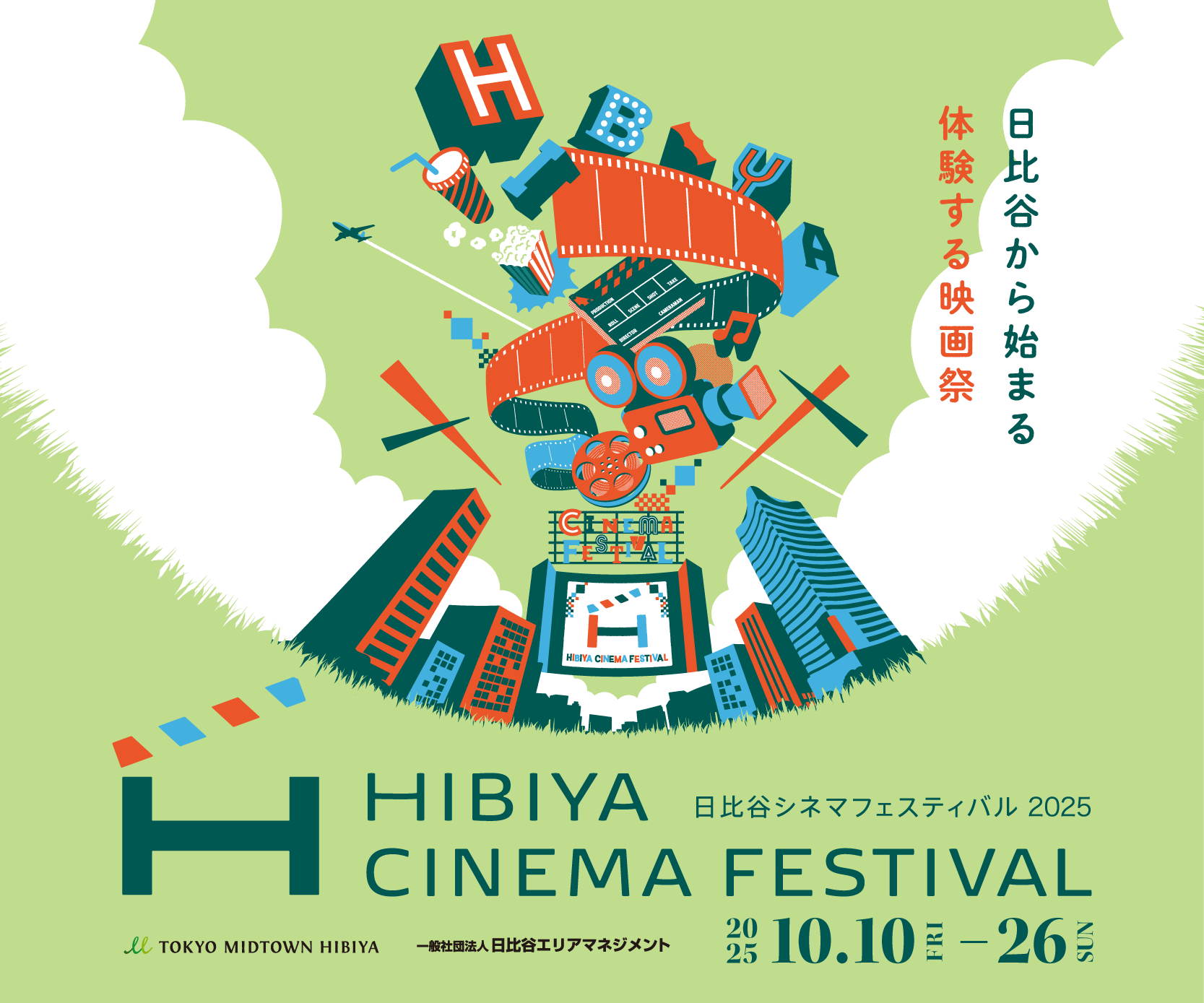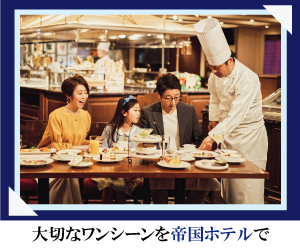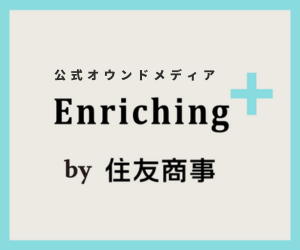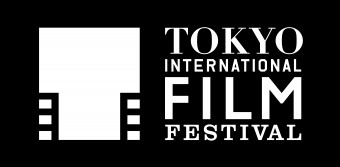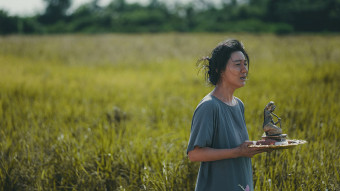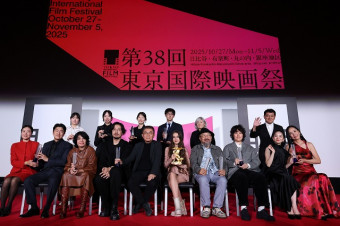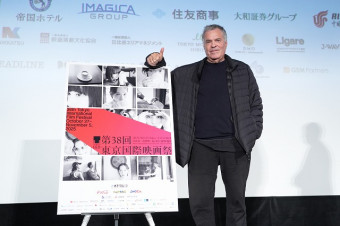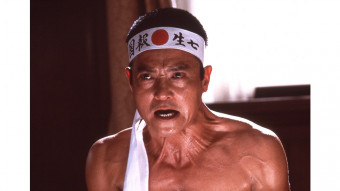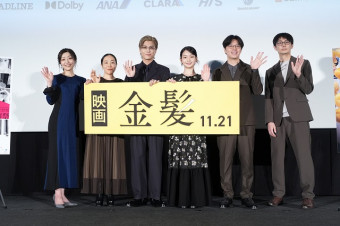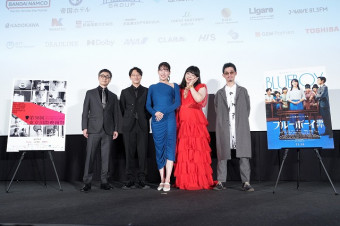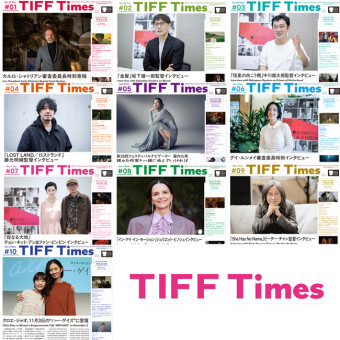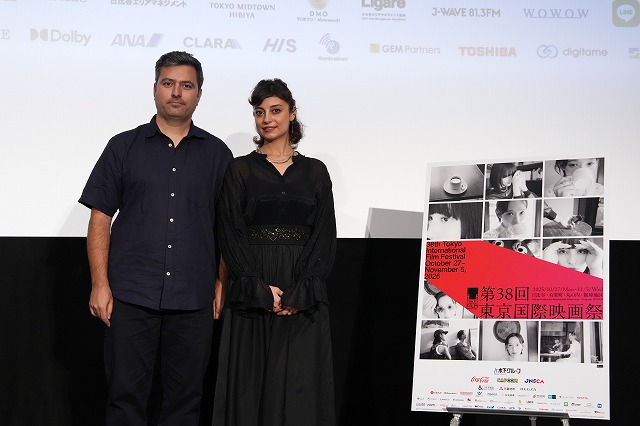
Do we really need all the answers? Do viewers have to agree on what they’ve just seen? Those are the questions that Iranian director-producer Amirreza Jalalian left the audience with after the November 1 world premiere of his beautiful, mysterious Noah’s Daughter, screening in the Asian Future section of the 38th Tokyo International Film Festival.
A poetic celebration of landscape, silence and the human heart, the film focuses on a young woman who is camping on a coastal island in southern Iran. She seems content in her solitude, never bored by her repeated daily rhythms. But when she has conversations—with an older woman with whom she is clearly intimate; with another camper, a man who only visits when he’s tired of his male tent-mates—they are often cryptic. Sometimes she takes their wrist in her hand and feels their pulse, sensing things that remain enigmatic. Nothing truly eventful happens, but one day, the older woman tells her, “There is plenty of time to die.” The young woman packs up her tent and goes back to the city, where the radio is reporting on the deaths of many from pollution.
Appearing with the film’s star, Kati Saleki, at a post-screening Q&A, the director and actor both thanked TIFF for the experience of watching the film for the first time on a large screen, together with the audience.
TIFF Senior Programmer Ishizaka Kenji, acting as moderator, began by asking about the title, since “Noah” is not shown onscreen. Jalalian explained, “We’ve all read books about history and religion and we all know about (the patriarch who built the ark). In the story of Noah, there are three sons but no daughter. I was thinking, if Noah had a daughter, what would she be like? What kind of prophet would she be? I think she would be very quiet, a very good listener. Rather than causing a miracle, she would be a gentle soul.”
Discussing his decision to include many long scenes in which Noah’s daughter simply sits quite still, Jalalian explained, “When I try to decide the style of my film, I think about what should happen between myself and the audience. As you saw, very little really happens in the film, but I hope the audience will swim in the waters and pay close attention. It’s difficult for an actor, of course, having such long takes. It was particularly difficult with the bonfire scene, since I wanted to capture it until the fire went out completely, making it an especially long take.”
Said Saleki, addressing the length of the take, “I thought about how I should act in various situations, staying faithful to the script. So I acted in the way the director wanted me to. One of the pieces of advice that he gave me was to ‘just live,’ so that’s what I did as I was making a fire or cooking.”
One audience member, welcoming the guests in Persian, said he wondered if the story might have been better expressed on stage, rather than on film, since the scenes and the ma, the stillness, are so lengthy.
Responded Jalalian, “To me, film is like a country and there are many beaches within that country. Films by people like Ozu Yasujiro and Abbas Kiarostami are often called slow cinema, where very little happens. In fact, they removed events from their films, it seems. And what I feel is that the audience doesn’t have to wait for an event to happen. Instead, the audience can discover each and every moment in the film.”
“So, as the conductor of the orchestra, I wanted to create the harmony and maintain the rhythm to the very end of this film. And some people may not like this kind of style, but I dare say it shouldn’t have been done on stage, but rather in a film, because this is about the relation between human beings and nature. So it had to be shot in the natural environment.”
Ishizaka mentioned that he and his staff had disagreed about a key point, and he wanted to ask the audience’s opinion. “So I would like to ask the audience to raise your hands. How many of you thought the mother was alive and came to see her?” Only a smattering of hands. “How many of you thought that was the spirit of her dead mother?” The rest of the audience raised their hands.
Ishizaka turned to the director. “Can you please tell us?”
“I didn’t raise my hand for either one.” said Jalalian with a smile. “It’s totally up to you.”
Q&A Session: Asian Future
Noah’s Daughter
Guests: Amirreza Jalalian (Director/Screenplay/Producer), Kati Saleki (Actor)














